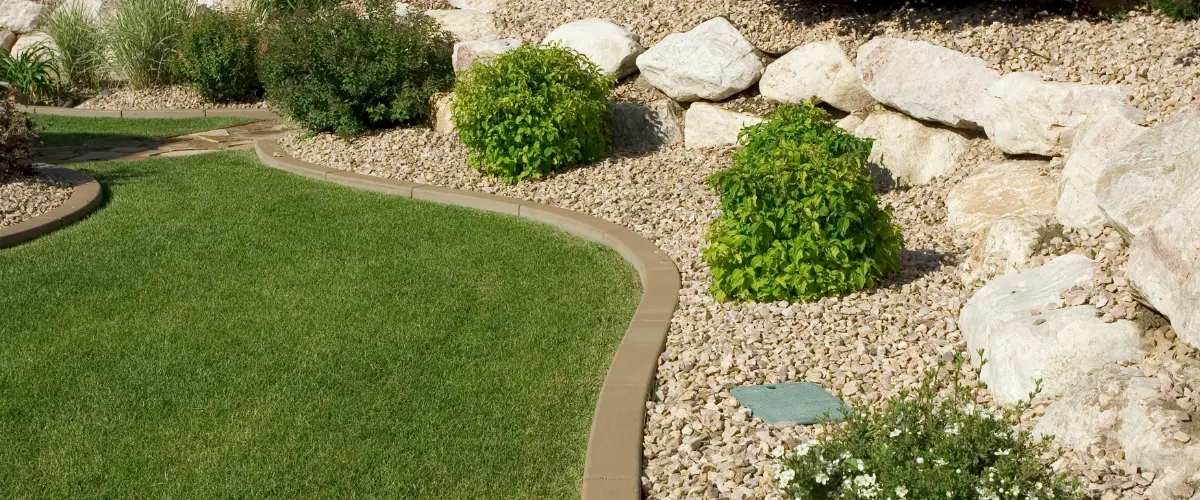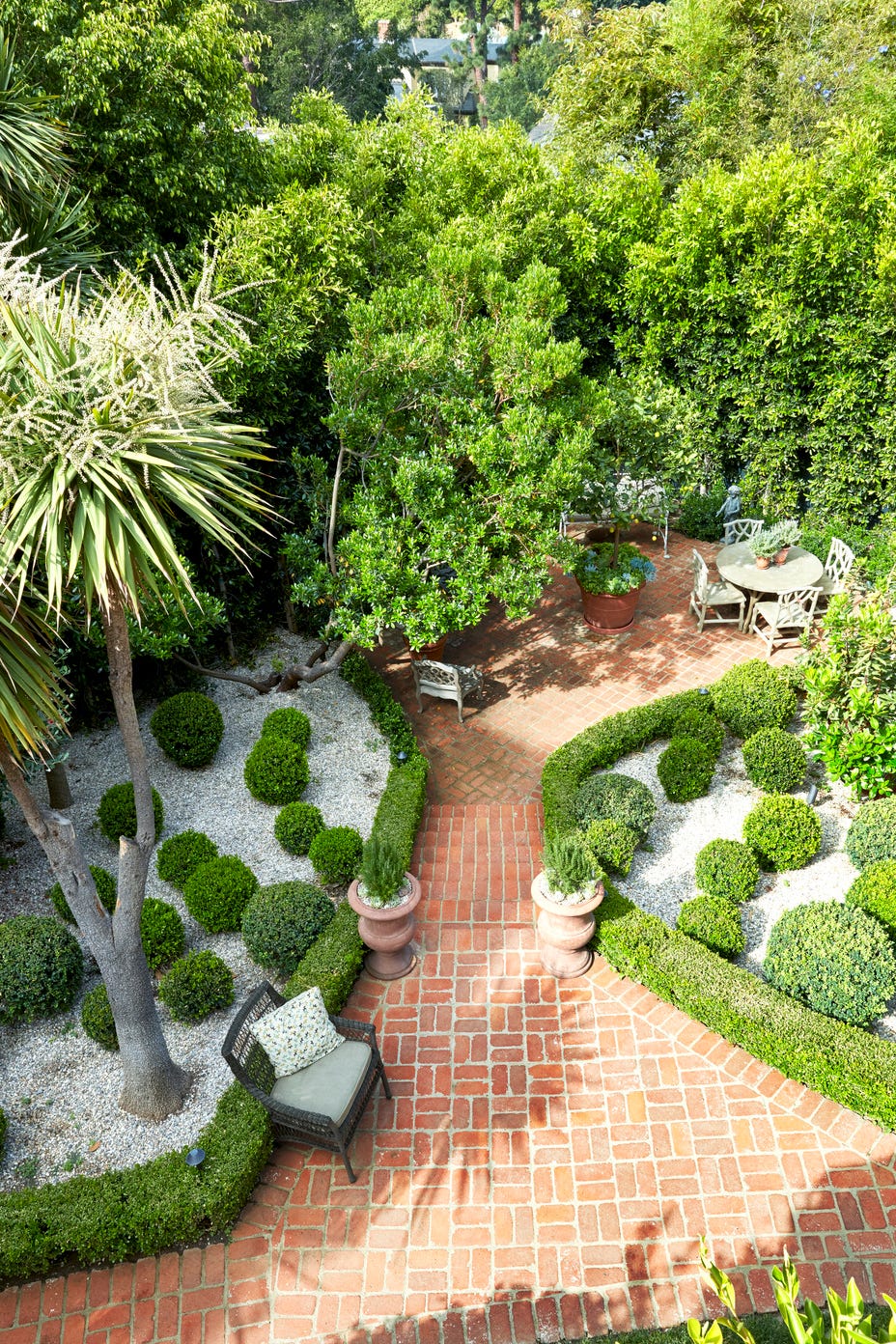Landscaping Services Near Me: Producing Outdoor Spaces Involves Arranging Plants, Pathways, And Functions To Boost Natural Appeal And Performance
Tracing the Roots of Landscape Design
Have you ever roamed through a garden and felt transported to another period? Landscape design isn't almost planting flowers; it's a story etched into the earth, shaped over centuries by culture, climate, and imagination. From the formal gardens of Renaissance Europe to the wild, naturalistic settings preferred by the English Romantic motion, the advancement of landscape style exposes humanity's shifting relationship with nature.
The Ancient Foundations
Long before modern-day tools and digital plans, early civilizations crafted landscapes with symbolic intent. The hanging gardens of Babylon, frequently hailed as a marvel of the ancient world, combined engineering marvel more info with lavish greenery to create a sanctuary in the desert (Landscaping). The Japanese zen gardens echo simpleness and meditation, proving that landscape design can be both practical and profound
Key Milestones in Landscape Style History
| Age | Characteristic | Noteworthy Impact |
|---|---|---|
| Ancient | Significance and utility | Egyptian and Babylonian gardens |
| Renaissance | Symmetry and order | Italian official gardens |
| 18th Century | Naturalistic, pastoral landscapes | English landscape gardens |
| Modern | Ecological level of sensitivity and development | Contemporary sustainable design |
Why Does This Matter Today?
Isn't it interesting how the principles of landscape design from centuries ago still influence our yards and parks? When developing an area now, comprehending its historic context enriches the procedure. For example, including aspects of balance from the Renaissance can bring balance, while welcoming natural forms aligns with today's environmental priorities.
- Historical knowledge informs material options and plant selection.
- Standard designs can mix with modern sustainability practices.
- Designs evoke emotional actions by taking advantage of cultural memory.
Review a garden you like-- does it whisper stories of past design movements or boldly state originalities? Landscape style is a living discussion in between history and innovation, where every path and plant tells a tale.
Unwinding the Principles That Shape a Landscape
Ever questioned why some gardens appear to whisper tricks while others scream turmoil? The response lies in the concepts of landscape design. Balance, rhythm, and unity are more than simply fancy copyright; they are the unnoticeable threads weaving a tapestry that pleases the eye and relaxes the soul.
Balance isn't simply about balance. Think of an enormous oak tree on one side and a cluster of delicate flowers on the other-- visual weight matters, not identical shapes. It resembles a conversation where both voices are heard without subduing one another.
Aspects That Bring Life to Your Outdoor Canvas
- Line: Guides the observer's eye, whether through a winding course or a row of hedges.
- Kind: Shapes that create structure; think of the contrast between round shrubs and angular rocks.
- Texture: The roughness of bark against smooth leaves adds depth and intrigue.
- Color: Plays with mood-- cool blues soothe, while intense reds stimulate.
- Area: The breathing space that avoids overcrowding and turmoil.
Expert Tips on Harmonizing These Components
- Start by sketching your area, marking existing functions-- do not underestimate the power of an easy illustration.
- Use repetition of shapes or colors to create rhythm, however avoid uniformity by presenting unforeseen centerpieces.
- Consider the seasons; what looks stunning in spring might disappear by fall-- evergreens can anchor your style year-round.
In my early projects, ignoring scale resulted in a garden overshadowed by towering trees, leaving no space for underplanting. Lesson discovered: constantly measure and imagine in three dimensions. Does your design invite exploration or confusion? Mastering these landscape design aspects changes spaces from mere plots of land into immersive experiences.
Exploring the Variety of Landscape Style Styles
Why go for a cookie-cutter garden when the world of landscape design offers a spectrum of designs that can transform an easy backyard into a living work of art? From the structured beauty of formal gardens to the wild, untamed appeal of naturalistic designs, each type welcomes a special story to unfold. Ever discovered how a Japanese garden whispers calmness while a Mediterranean courtyard shouts lively life?
Popular Styles & & Their Signature Aspects

- Official: Proportion rules here, with clipped hedges and geometric patterns assisting the eye.
- Casual: Free-flowing lines and natural plant groupings mimic nature's randomness, making area feel relaxed and welcoming.
- Contemporary: Minimalist and sleek, this style blends hardscapes like concrete and steel with thoroughly chosen plant.
- Rustic: Think rough textures, native plants, and reclaimed products that echo countryside charm.
- Tropical: Bold foliage and dynamic flowers create an immersive, lavish environment best for warm climates.
Insider Tips for Selecting the Right Design
One secret frequently overlooked: soil and climate dictate what grows, not just looks. Don't let the desire for unique plants sabotage your style. Rather, accept native species that need less water and care, lining up sustainability with style. Ever tried layering textures and heights to develop depth? A basic technique like planting ornamental lawns behind shorter perennials can breathe life into flat landscapes.
Table: Design Characteristics vs. Practical Considerations
| Design | Maintenance Level | Best For | Key Products |
|---|---|---|---|
| Formal | High | Classic homes, public gardens | Boxwood, stone, gravel |
| Casual | Moderate | Household yards, natural settings | Native plants, mulch, wood |
| Contemporary | Low to moderate | Urban areas, modern homes | Concrete, metal, succulents |
| Rustic | Low | Rural homes, cabins | Natural stone, wildflowers |
Ever had problem with visualizing how a style might suit your space? Sketching or digital modeling can reveal nuances hidden by the naked eye. Keep in mind, a cohesive landscape style isn't simply about plants; it has to do with creating an environment that feels like an extension of your own personality.

Accuracy Satisfies Imagination: Tools That Forming the Landscape
Ever tried shaping a masterpiece with blunt instruments? That's how landscape design feels without the ideal toolkit. From the humble measuring tape to innovative digital software, the arsenal of tools directly influences the final visual and performance of any project. A laser level can be a game changer when you need to make sure best grade and drain-- something every landscape designer consumes over but couple of customers notice.
Important Instruments for Every Landscape Designer
- Determining tapes and stakes for precise spacing and design
- Soil test packages to evaluate pH and nutrient levels, diving deeper than simply "good dirt"
- Sketching tools: pencils and chart paper for early conceptualization
- Digital design software application that simulates sunlight and shadow patterns over seasons
- Pruning shears and hand saws, essential for forming living elements
Methods That Turn Soil into Stories
Do you understand why contouring a garden bed matters beyond looks? It manages water runoff, decreasing disintegration and securing root systems. It's a subtle art of balancing nature's impulses with human objective. When setting out paths, consider the natural walking patterns-- requiring rigid, straight lines frequently backfires, both visually and functionally.
One lesser-known trick is using xeriscaping techniques to produce drought-resistant landscapes. It's not almost saving water; it has to do with weaving a durable tapestry that loves minimal intervention. Integrate native plants and layer textures to build depth and year-round interest.
| Technique | Function | Professional Suggestion |
|---|---|---|
| Terracing | Handle sloped land to avoid soil disintegration | Usage keeping walls with natural stone for resilience and aesthetic harmony |
| Mulching | Keep moisture and reduce weeds | Organic mulches enhance soil health as they break down |
| Layering | Create visual interest and ecological balance | Integrate groundcovers, shrubs, and trees with staggered heights |

Creative Outside Areas in San Diego County
San Diego County is renowned for its diverse landscapes, stretching from gorgeous seaside beaches to rugged inland mountains and extensive deserts. Home to over 3 million locals, the region provides a lively mix of cultural attractions, outdoor activities, and natural beauty. Popular locations consist of Balboa Park, known for its gardens and museums, and the beautiful Torrey Pines State Natural Reserve. The moderate, Mediterranean environment supports a variety of plant life, making it a perfect area for innovative and sustainable landscape style.
They motivate you to reach out to California Landscape Development for a free assessment and expert guidance on landscape design, helping you change your outside location into a sensational and practical area.